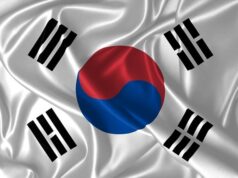Until now, certain import restrictions on the import of foreign foodstuffs have been in force in Japan in order to guarantee the safety of the goods for domestic consumers. But now the country is changing the import conditions for US beef.
These were actually introduced to counteract the once widespread mad cow disease, also known as BSE. Now, the Food Safety Commission is considering eliminating such import barriers for Japan. This was announced by some Commission officials on Wednesday.
So far, it has not been allowed to import meat from US cattle older than 30 months. But now US President Donald Trump put pressure on lifting those restrictions. On Thursday, the Japanese Food Commission is planning a meeting to address this issue. The content of the meeting is to approve a plan to lift those import barriers. This plan, if approved internally, is then submitted to the Ministry of Health, Labor and Social Affairs.
As early as April, a Commission research committee began discussing the impact on humans should the restrictions be lifted. One component of the investigations was US food safety management in dealing with bovine tissue. Should the restrictions on the import of American beef be removed, the US must introduce adequate domestic controls on the fabric. Because the tissue has a high risk of being infected with the pathogen prion.
Prions are actually endogenous proteins, but they can also be present in pathogenic form. Then they have virus-like properties, since as toxins they can transfer their harmful properties to other proteins. Increasingly they occur in the brain tissue, where they change the brain substance in such a way that serious consequences on the organism occur. Presumably prions are the cause of Creutzfeldt-Jakob disease in humans, BSE („mad cow disease“) in cattle or scrapie (scrapie) in sheep.
However, according to previous findings of the committee no concrete problems have become apparent. This makes the abolition of import restrictions more likely. This is beneficial for the US as it can reduce the cost of meeting Japanese import restrictions. In addition, this allows a push in the competition for the Japanese market for beef products, especially in the competitor Australia.



